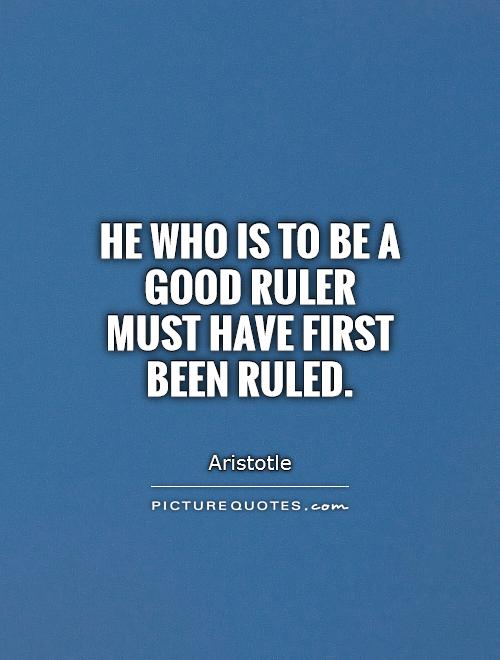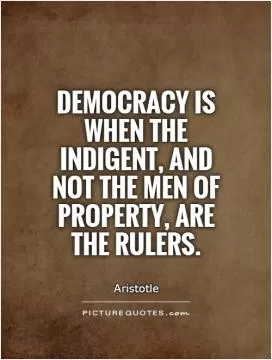He who is to be a good ruler must have first been ruled

He who is to be a good ruler must have first been ruled
In the realm of political philosophy, Aristotle's words hold great significance when he stated, "He who is to be a good ruler must have first been ruled." This statement encapsulates the idea that in order to effectively govern others, one must first understand what it means to be governed and to experience the responsibilities and challenges that come with being under authority.Aristotle believed that a good ruler is someone who has a deep understanding of the needs and concerns of the people they govern. By having been ruled themselves, they are able to empathize with the struggles and frustrations of those they lead. This experience allows them to make decisions that are in the best interest of the people, rather than solely focusing on their own power and prestige.
Furthermore, being ruled provides valuable lessons in leadership and humility. A good ruler must be able to listen to the advice and opinions of others, even if they do not always agree. By experiencing what it means to be under authority, they learn the importance of collaboration and compromise in governance. This humility allows them to be open to new ideas and perspectives, ultimately leading to more effective and inclusive decision-making.
Additionally, being ruled teaches important lessons in responsibility and accountability. A good ruler must understand the impact of their decisions on the lives of those they govern. By experiencing the consequences of being under authority, they learn the importance of acting with integrity and transparency in their leadership. This accountability fosters trust and respect among the people, creating a more stable and harmonious society.












 Friendship Quotes
Friendship Quotes Love Quotes
Love Quotes Life Quotes
Life Quotes Funny Quotes
Funny Quotes Motivational Quotes
Motivational Quotes Inspirational Quotes
Inspirational Quotes